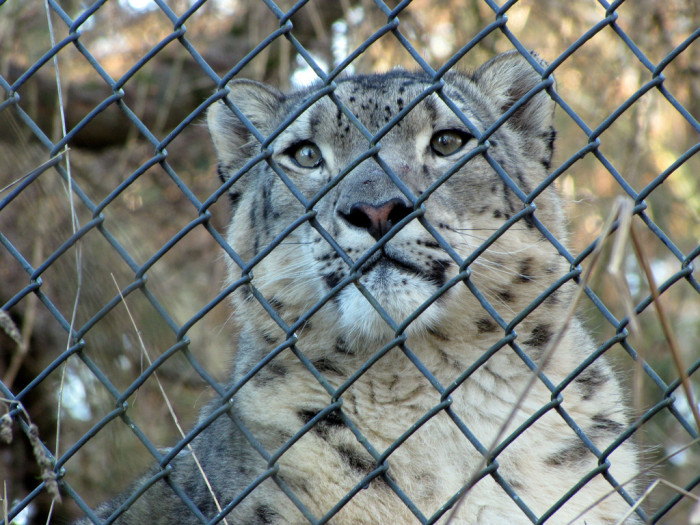Whenever your apartment or office space seems a little cramped, imagine languishing in a single barren enclosure, unable to move beyond the narrow confines of its steel bars. When your family and friends are testing your patience, picture being suddenly torn from them without explanation, left to fend for yourself. Imagine the psychological toll—so profound and searing with detail—that you would experience after spending years under the same routine, staring at the same spaces, forced to interact with individuals unaware of your daily struggle.
You don’t have to be a vegan to understand the appalling nature of zoos. Because we are socially conditioned to harbor a fondness for naturally wild animals—monkeys, elephants, giraffes, lions, pandas and the like—it is not surprising that many people express outrage when they discover the reality behind zoos. Using animals for entertainment purposes has already become a sensitive topic for many people, especially with the release of widely acclaimed films such as Blackfish. If so many of us feel compassion for these animals, why do zoos still exist, and why do so many people continue to patronize them? The reasons for this are numerous and far from simple.
Education. Most facilities take pride in their mission to educate, exposing patrons to a variety of species and their unique habitats. The irony, of course, is that zoos are a far cry from any real representation of a wild animal’s lived experience. For individuals that do glean some information from their visit, studies show that this knowledge rarely translates to any long-term commitment to conservation or animal welfare.
Protection. Some proponents of zoos maintain that, without their valiant efforts, endangered species would fall into extinction. While it is true that many locations do indeed take in animals that are threatened by extinction, the numbers are largely exaggerated. According to a 1994 report by the World Society for the Protection of Animals, only 1,200 out of 10,000 zoos worldwide were engaged in captive breeding or wildlife conservation. Furthermore, whatever zoos offer in the way of “protection,” they are severely lacking in providing animals any environment that adequately mimics their natural habitat. Therefore, while this argument appears convincing on the surface, it does not hold up to the end goal of providing a species with conditions in which to survive and thrive. In order to truly save a species from extinction, it is best to support organizations that are dedicated to habitat preservation.
The “cuteness” factor. Whether you choose to admit it or not, many of us are attracted to zoos because they tout their baby animals across various media outlets. I find this profoundly disturbing, but there’s no question that these facilities maintain a thriving business by promoting their most popular animals. When animals are deemed “too old” they are often transferred from facility to facility and ultimately sold to roadside zoos. If you’re interested in seeing cute, happy animals, why not scope out your closest animal sanctuary? There’s nothing better than watching a liberated pig or sheep frolicking or rolling in a pile of hay.
Ultimately, the bottom line is this: animals suffer tremendously when held in captivity. Just like animals in a laboratory or farm factory setting, animals in zoos experience severe psychological trauma in the form of incessant pacing, swaying, head-bobbing, bar-biting, and self-mutilation.
As a consumer, what can you do to oppose zoos and other entertainment venues (like rodeos and sea parks)? Obviously, you must first boycott the businesses that choose to exploit these animals. Beyond that, however, use your power of choice to opt for organizations that truly celebrate the life of an animal or work to preserve wild habitats. For a list of animal sanctuaries throughout the world, visit the Global Federation of Animal Sanctuaries.
__
Photo: Shannon Kringen via Flickr





